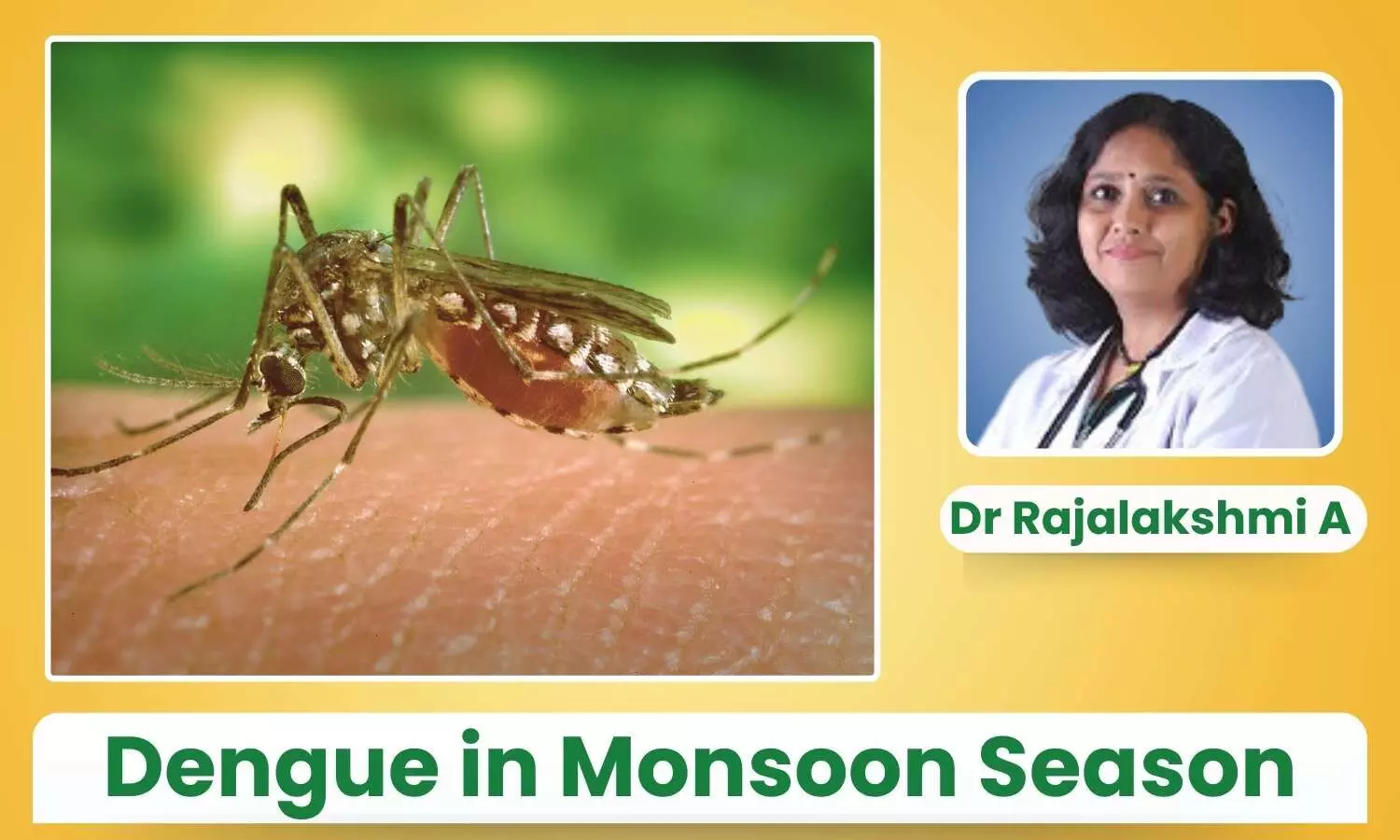Dengue in Monsoon Season: How Rainfall Fuels Outbreaks - Dr Rajalakshmi A

Dengue fever, a mosquito-borne viral illness caused by the dengue virus (DENV), poses a significant public health threat in tropical and subtropical regions, particularly following the rainy season.
The disease is transmitted primarily by the Aedes aegypti mosquito, which breeds in stagnant water commonly found after heavy rainfall.
The post-rain period is marked by a notable surge in dengue cases, often leading to seasonal outbreaks, increased hospital admissions, and considerable strain on healthcare systems.
Rainfall contributes directly to the creation of mosquito breeding sites. Water collects in uncovered containers, discarded tyres, flower pots, clogged drains, and construction sites, creating ideal habitats for Aedes mosquitoes.
Urban areas with inadequate drainage and waste disposal systems are especially vulnerable. The eggs of Aedes aegypti can survive dry conditions for months and hatch once submerged in water, leading to a rapid increase in mosquito populations after the rains.
Warm and humid post-monsoon conditions further accelerate the mosquito life cycle and enhance viral replication within the mosquito, increasing the likelihood of transmission. The daytime-biting behaviour of Aedes aegypti also increases human exposure, especially in densely populated communities.
Clinical and Epidemiological Impact
Dengue presents with a spectrum of clinical manifestations, ranging from mild febrile illness to severe forms such as dengue haemorrhagic fever (DHF) and dengue shock syndrome (DSS). The post-rain surge often leads to increased outpatient visits and hospitalization, particularly among children and young adults.
Many regions report cyclical outbreaks every 2–3 years, with a higher incidence in the post-monsoon months. In endemic settings, co-circulation of multiple serotypes increases the risk of severe disease due to antibody-dependent enhancement.
Challenges and Gaps
Several challenges complicate dengue control. Need ongoing vector surveillance, community engagement, adequate waste management, and sustained vector control effort for effective control of Dengue.
Moreover, the clinical overlap of dengue with other febrile illnesses during the rainy season, such as chikungunya, leptospirosis, can lead to diagnostic delays and inappropriate management.
Prevention and Control Strategies
Effective dengue prevention hinges on integrated vector management. This includes:
- Regular source reduction and elimination of stagnant water.
- Community education on covering water storage containers and proper waste disposal.
- Use of personal protective measures like repellents and full-sleeved clothing.
- Targeted insecticide spraying in high-risk areas.
- Enhanced surveillance and early warning systems to predict outbreaks.
Public health campaigns before and after the monsoon season, school and workplace-based awareness drives, and intersectoral coordination are essential components of an effective dengue control strategy.
The surge in dengue cases following rains underscores the urgent need for proactive, coordinated, and sustained public health interventions. Strengthening vector control, improving urban infrastructure, and increasing community participation are vital to reduce the post-monsoon burden of dengue and prevent large-scale outbreaks.


